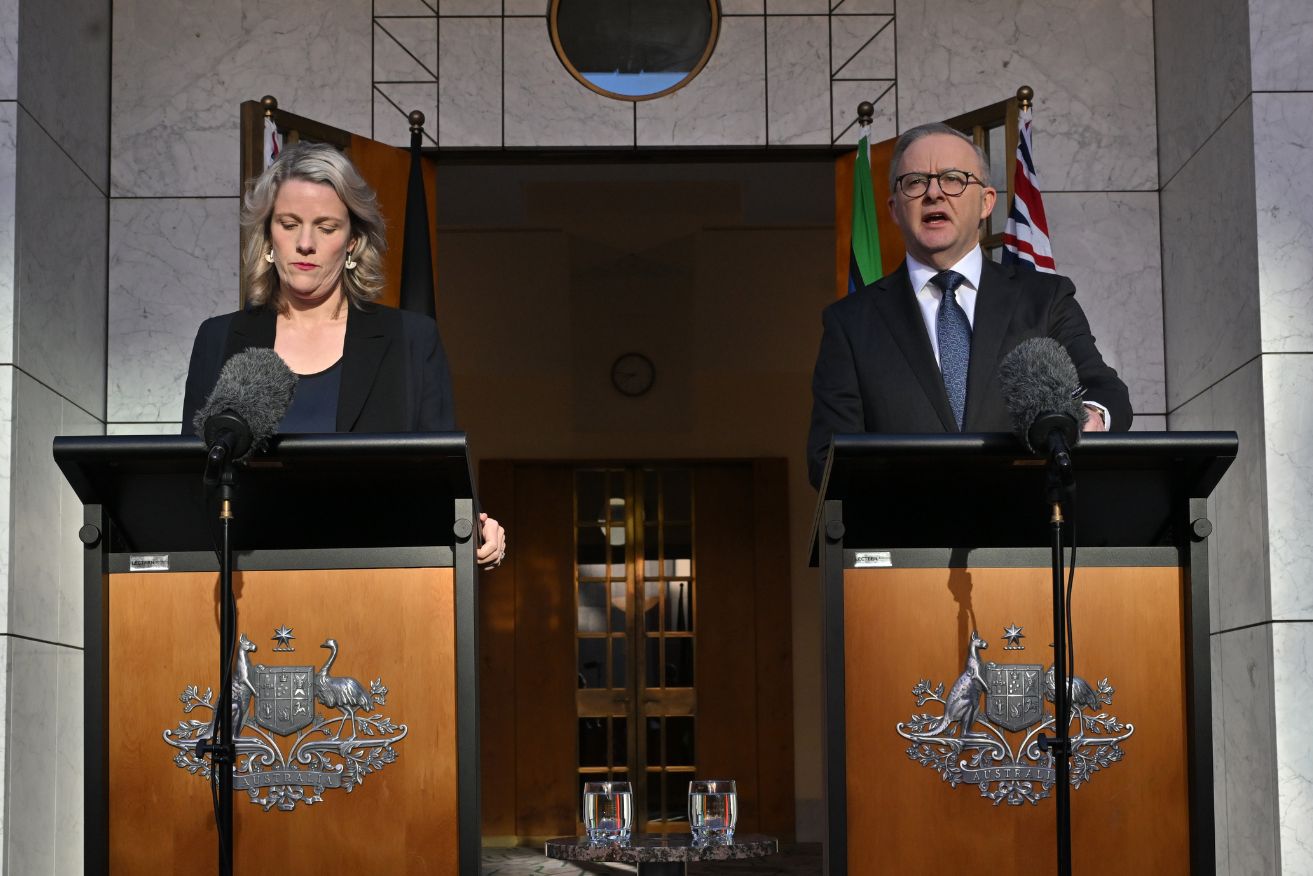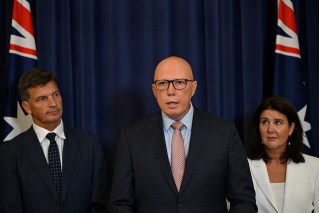Albanese’s new skilled visa will help fix Australia’s migration problems

Part of the reforms from Clare O'Neil and Anthony Albanese have been welcomed by experts. Photo: AAP
The Albanese government’s new ‘Skills in Demand visa’ will help to address major flaws in how Australia’s migration system delivers skilled workers to businesses.
It will provide better protections for temporary skilled migrants while addressing labour market needs more effectively.
Temporary skilled visas, namely the current Temporary Skill Shortage and the near-identical 457 visa it replaced, have been plagued by criticisms since they were first expanded in 1996 – and for good reason.
The Temporary Skill Shortage visa fails to meet its objective of fixing ‘skill shortages’. Instead, it allows employers with mere ‘recruitment challenges’ to sponsor workers from abroad.
Compared to market-wide skill shortages, recruitment challenges tend to be isolated and can be caused by individual employers offering uncompetitive wages and conditions that fail to attract workers locally, demonstrated by unsuccessful job advertisements.
Perversely, this can reward employers who offer poor-quality jobs, disadvantaging their business competitors and workers, rather than encouraging them to improve wages and conditions in line with market standards.
The Temporary Skill Shortage visa effectively ties migrant workers to the employer who sponsors them, a restriction that does not apply to Australian citizens and permanent residents.
This makes it difficult for a migrant worker to leave even if they can use their skills more productively elsewhere or if their employer is underpaying or mistreating them.
Sponsored migrant workers’ dependence on their employers created by the Temporary Skill Shortage visa has contributed to problems of exploitation and declining public confidence in the migration system.
To address these inefficiencies and inequities in migration policy, our submission to the Parkinson Review of the Migration System proposed a ‘temporary skilled mobility visa’.
Our research identified several essential principles of any such visa to ensure it serves migrant workers, the wider workforce, employers and the public interest.
These principles include ensuring migrant workers have mobility to switch employers, a pathway to permanent residency, and better protection of their workplace rights.
We also argued skill shortages should be verified independently so the migration system operates effectively alongside the education and training system to address genuine shortages.
The new Skills in Demand visa broadly meets these principles, which will help to avoid the problems of the Temporary Skill Shortage visa.
If the employment relationship is terminated, temporary skilled workers will now have much longer – a 180-day window rather than the current inadequate 60 days – to find another sponsor and can undertake other paid work in the interim.
Workers will be able to leave an exploitative job and take their skills to where they are most needed.
This will grant temporary skilled workers a much greater degree of mobility, reducing mistreatment risks and contributing to a more dynamic labour market.
The government is proposing that Jobs and Skills Australia will independently verify occupations as being in genuine shortage before they are eligible for visa sponsorship.
Once implemented, this reform will help to address problems of employers using temporary skilled visas to avoid training or improving wages and working conditions to address their skills needs.
Migrant workers will have a clearer pathway to permanent residency under the new rules, which is another positive step.
So too are proposals to streamline visa applications, make sponsorship fees monthly or quarterly rather than upfront, and create a public register of approved employer sponsors.
These reforms will make the visa system less cumbersome for both employers and migrant workers.
Will employers be satisfied with the new Skills in Demand visa? They should be.
The reform package provides for independent identification of skill shortages, more efficiently delivers workers with skills where they are most needed, and spreads employers’ financial investment over the life of sponsorship.
Some will no doubt voice opposition to losing the advantage of binding workers to sponsoring employers, a practice increasingly out of step with rightful concerns over modern slavery.
Instead, good employers will be now able to attract and retain skilled workers by treating them fairly.
If they don’t, workers will move to where they are in greatest demand, which will allow the labour market to function more efficiently.
There is a case for further changes, such as lifting current barriers to temporary skilled migrants’ social inclusion, including restrictions on accessing welfare support and subsidised public schooling and child care, and mandating workplace inductions to ensure new migrants have knowledge of their rights.
Nevertheless, these are important reforms that strike the right balance between efficiency and equity.
They will help to restore public confidence in the migration system and better serve the national interest.
Associate Professors Chris F Wright and Stephen Clibborn teach and research at the University of Sydney Business School where they are co-directors of the Sydney Employment Relations Research Group.








